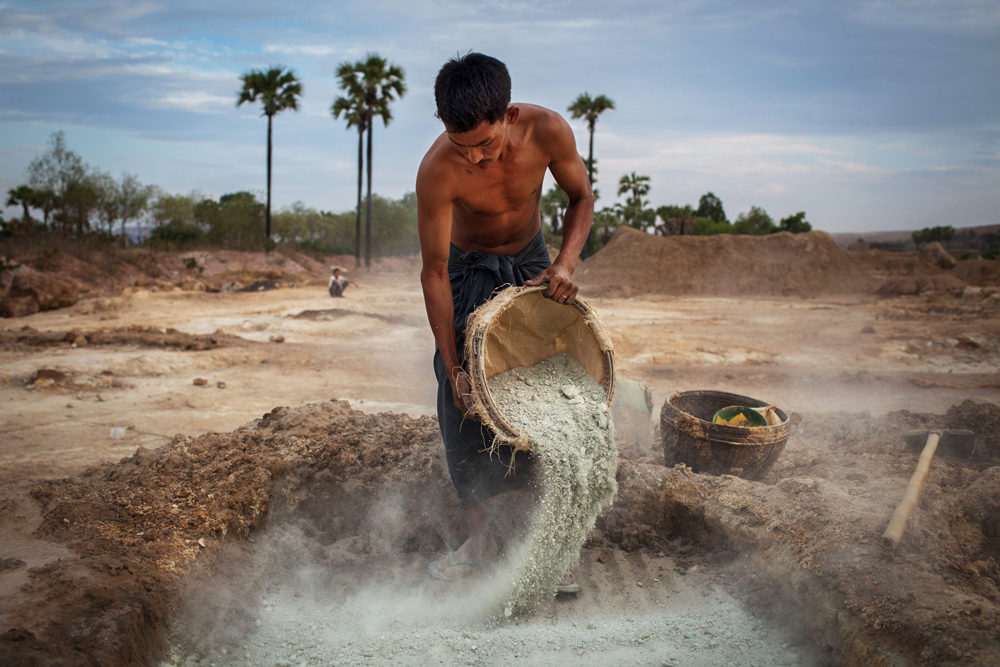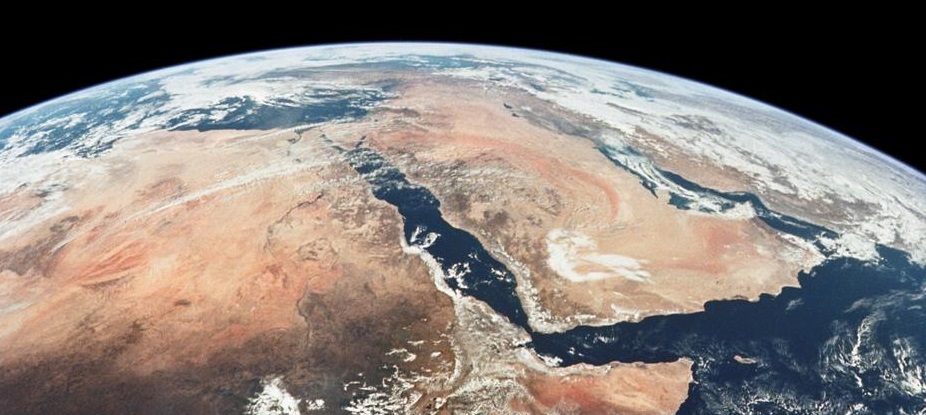
June 2020 News and Analysis from NRGI
Highlights
Country Assessments: The Coronavirus Pandemic and Economic Crisis
As the coronavirus pandemic has unfolded and unleashed economic shocks, NRGI experts have analyzed the impacts it has had on resource-rich countries. Browse the collection to date: Colombia (in Spanish), Democratic Republic of the Congo (in French), Ghana, Guinea (in French), Lebanon (in Arabic), Mexico (in Spanish), Mongolia (in Mongolian), Nigeria, Peru (in Spanish), Tanzania, Tunisia, Uganda.
Switzerland Adopts Extractive Sector Transparency Law, Opens Door to Improved Commodities Trading Transparency
On 19 June, the Swiss parliament adopted a new law requiring Swiss extractive companies to disclose the payments they make to governments around the world, with the possibility that the requirement will include commodity traders.
How Can Extractive Sector Laws and Policies Contribute to Gender Equality?
Many governments are making positive commitments to gender equity, but in countries where the extractive industries are a significant part of the economy, what do such commitments mean in practical terms and how do they contribute to positive changes in people’s lives and livelihoods? This is the first in a new series of blog posts from a research project by NRGI and World Resources Institute on gender and extractives. (This post is also available in Spanish.)
Can We End Corruption In Oil, Gas, and Mining?
This Brookings Institution webinar, taking place tomorrow (1 July), will explore solutions to the challenges of corruption along the natural resource value chain globally. Speakers, including NRGI's Daniel Kaufmann and Alexandra Gillies, will discuss the key takeaways of a new report from the Leveraging Transparency to Reduce Corruption project, a Brookings partnership with NRGI and Results for Development.
Blog
Five Questions About How Debt Relief Initiatives Will Work for Resource-Rich Countries
Resource-backed loans are a significant part of overall debt in a number of resource-rich countries and also illustrate the complexity of debt renegotiations. (This post is also available in Mandarin.)
Tanzania Strikes a Better Balance with its Mining Fiscal Regime
Tanzania’s reintroduction of value added tax refunds for mineral exports better aligns its tax level with that of other countries, while maintaining a fiscal regime that should still generate significant government revenue. This post explores how the reform will impact the sector and its prospects for new investment.
How Cheap Oil and the Pandemic Threaten Economies and the Energy Transition in the Middle East and North Africa
The coronavirus pandemic and the collapse in the oil price are testing precarious economic models in the Middle East and North Africa. But if countries in the region deprioritize the diversification of their energy mixes they will miss out on the long-term opportunities renewables can bring.
Amid the Pandemic, a Perfect Storm Challenges Anticorruption and Natural Resource Governance
A new report shows that there is nothing deterministic about a so-called “resource curse” and makes the case that transparency, accountability and participation are necessary but insufficient to enable long-term improvements in resource governance.
Gas-to-Power Challenges Point to Expansion of Renewables
For many developing counties, natural gas offers promise. There can be hidden costs to gas, however, as experiences in Ghana and Algeria show. Although certainly not without challenges of its own, renewable energy may help countries in similar situations better manage their energy use and revenue.
How Civil Society Organizations, Companies and Governments Can Protect Resource Payment Transparency During the Crisis
The pandemic has led to delays in reporting extractives payments to governments and will likely continue to impact the flow of timely and granular data for the foreseeable future.
It’s Time for EITI to Tackle the Energy Transition
Stakeholders in resource-rich countries deserve timely information on the social and economic implications of fundamental changes unfolding in the extractive sector, especially those related to the energy transition.
¿Una nueva carrera hacia el fondo? Desafíos de gobernanza para el sector minero en América Latina en tiempos de COVID-19
In this Spanish-language post, NRGI's Latin America team introduces its new working document that discusses the governance challenges of mining in the region.
Gobernanza de las Industrias Extractivas en América Latina: Material de Capacitación Introductorio
This publication, a companion for a course for civil society organizations in Peru and Colombia, serves as an introductory document for those interested in natural resource governance in Latin America.
Clean Energy and Fossil Fuels in the Middle East: A Virtuous Cycle?
The world’s determination to fight climate change and green the energy mix is a concern for large Middle Eastern oil exporters, which sit on massive proven hydrocarbon reserves. The risk of such assets becoming stranded and losing value is high, with significant consequences for these poorly diversified economies.
Mining Lessons From Mongolia’s Many Revenue-Sharing Experiments
Mongolia’s policy experiments with resource-to-cash programs provide unique perspective into public ownership and revenue sharing in the mineral sector. As governments around the world rethink the role of the state in the ongoing public health crisis, they could learn from Mongolia’s experience.
NRGI's 2019 End-of-Year Review
The review’s executive summary provides an overview of NRGI’s programming across its thematic areas. It also includes select outcome stories that demonstrate how NRGI’s theory of change manifests in real-world interventions and results.
Events
Engaging with Mining Companies During COVID-19 and Beyond
Participants in this CONNEX webinar, taking place on 7 July, will consider how governments should prepare to engage with investors during and after the coronavirus pandemic, and how development partners can support this agenda. Speakers will include NRGI's Nicola Woodroffe.
Natural Resource Governance and Development: Policies and Practice
NRGI’s advanced course has been postponed and reformatted, in light of pandemic-related travel restrictions. It is now a blended learning course, with an online portion and an in-person portion in Zurich (February 2021). Applications remain open until 31 July.
VIDEO: What Cheap Oil Means for Corruption and Governance.
Catch up on the Center for International Private Enterprise's discussion with NRGI's Alexandra Gillies.
NRGI in the news and on the web
PODCAST: Middle East Energy Transition Dialogues, feat. NRGI's Laury Haytayan
Gulf Intelligence
Exclusive: Angola cuts oil shipments to China as it seeks debt relief
Reuters
The TAP-Plus approach to anti-corruption in the natural resource value chain
Brookings Institution
‘Grassroots’ oil and gas advocacy group Canada Action received $100,000 from ARC Resources
The Narwhal (Canada)
In Historic Move, NNPC Releases Audited Results to Public
This Day (Nigeria)
Crise pétrolière : l'Angola veut renégocier sa dette envers la Chine
FranceInfo
Corruption is a threat to planet Earth
Brookings Institution
ALSF Annual Report 2019: Enhancing Economic Development and Inclusive Growth (PDF)
African Legal Support Facility
Greasy Palms
Literary Review
Sudan and Trade Integrity
Global Financial Integrity
Buhari, break up NNPC, liberalise oil downstream sector
Punch (Nigeria)
သတ္တုကဏ္ဍ မှီခိုနေရသည့်နိုင်ငံများအတွက် ကိုရိုနာဗိုင်းရပ်စ် ဖြစ်ပွားနေသည့်ကာလ မူဝါဒဆိုင်ရာ အဆိုပြုချက်သုံးချက်
7Day News (Myanmar)

